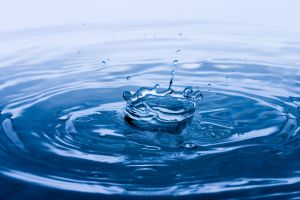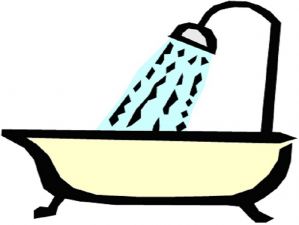Natural Acts Of Cleanliness Sunan al-Fitrah are natural acts of cleanliness that are innate to human nature.
Sunan al-Fitrah are natural acts of cleanliness that are innate to human nature.
Sunan al-Fitrah are natural practices in tune with how Allah created human beings and urged them to follow. They are natural and innate,they are also from the practice that was followed and taught by all the prophets. Allah commands us to follow the guidance of the prophets, ‘follow then, their guidance’ (Quran 6:90).
Complying with these practices ensure cleanliness of the body and purity from dirt and filth. They add honor to human beings and are listed in the following two hadiths of the Prophet:
“Five are from the natural practices: circumcision, shaving the pubic hair, cutting the moustache short, clipping the nails, and plucking the armpit hairs.”[1]
“Ten are from natural practices: clipping the moustache, letting the beard grow, using the tooth-stick, (cleaning) by putting water in the nose, clipping the nails, washing the knuckles and finger joints, plucking the hair under the armpits, shaving the pubic hairs, using water to clean one’s private parts (after urination).” The narrator said: ‘I have forgotten the tenth, unless it is rinsing the mouth.’[2]
Menstruation There are special regulations in Islam legislated for women regarding the three types of bleeding they experience, that are menses, post-partum bleeding, and abnormal bleeding. Women must understand the rulings pertinent to each type, as they deal with important aspects of worship, such as purification, prayer and fasting.
There are special regulations in Islam legislated for women regarding the three types of bleeding they experience, that are menses, post-partum bleeding, and abnormal bleeding. Women must understand the rulings pertinent to each type, as they deal with important aspects of worship, such as purification, prayer and fasting.
Menstruation is the release of blood and tissue through the vagina that occurs on a monthly cycle, not due to specific events such as birth or breakage of the hymen. Menstrual periods usually occur once a month and last for several days. Blood loss due to menstrual flow may vary from month to month. Women typically use sanitary towels (pads) or tampons to absorb menstrual flow. Menstrual blood is almost always dark color and not bright.
Post-Childbirth bleeding:
Such bleeding occurs after the event of birth or miscarriage. It has no minimum duration, but it may even last up to forty days. Umm Salamah said:
“During the lifetime of the Prophet, the post-childbirth woman would seclude herself for forty days.” (al-Bukhari)
A woman experiencing post-childbirth bleeding has to stop praying for forty days unless her bleeding stops before that. If her bleeding stops before that time, she is to perform the ritual bath (ghusl) and start praying. If she sees blood after forty days, most scholars say that she is not to stop praying. The blood of postpartum bleeding is also almost always dark.
Male Circumcision In Islam Male circumcision is among the rites of Islam and is part of the (in Arabic): fitrah, or the innate disposition and natural character and instinct of the human creation.
Male circumcision is among the rites of Islam and is part of the (in Arabic): fitrah, or the innate disposition and natural character and instinct of the human creation.
As-Shawkani said in his book Nayl al-Awtar (1/184): "What the Prophet (s.A.w.) means by Fitrah is that if these characteristics are followed by a man, he would be described as a man of Fitrah, which Allah (s.w.t.) has gifted his servants with, and encouraged them to follow, so that they attain a high degree of respectability and dignity."
Prophet Muhammad (peace be upon him) said, "Five are the acts quite akin to fitrah:Circumcision, clipping or shaving the pubes, cutting the nails, plucking or shaving the hair under the armpits and clipping (or shaving) the moustache." (Reported in Bukhari & Muslim)
Allah ordered Prophet Muhammad (peace be upon him) to follow the religion of Ibrahim (peace be upon him). When Allah says: "Then We inspired you: 'Follow the religion of Ibrahim, the upright in Faith'." (Qur'an 16:123)
Etiquette of the Ritual Bath (Ghusl) For many people, the main purposes of bathing are to remove dirt and odors and slough off dead skin cells - basically, to maintain good hygiene. In addition, people bathe to feel clean, smell fresh, and revitalize or relax. Good hygiene helps promote health and prevents disease.
For many people, the main purposes of bathing are to remove dirt and odors and slough off dead skin cells - basically, to maintain good hygiene. In addition, people bathe to feel clean, smell fresh, and revitalize or relax. Good hygiene helps promote health and prevents disease.
Islam is a comprehensive way of life and teaches us how to maintain and improve hygiene. Bathing etiquette is raised to the level of worship, and good hygiene is tied to spiritual purity. A new Muslim should learn the simple rules of bathing to maintain physical and spiritual cleanliness. Ghusl is the Arabic word for washing, specifically washing the entire body with water in a prescribed manner. Sometimes it is also called the ‘ritual bath’ or ‘major ablution’ to distinguish it from ‘minor ablution’ (wudoo’). When one seeks to purify themselves from major state of impurity, they should bathe keeping this intention in heart
Water as a purifying element is not unique to Islam, but is common to Judaism, Christianity, Hinduism, Shintoism, and others. In Judaism, water was traditionally used in the mikvah (Jewish bath) and in rituals of conversion. Also, the ritual bath (ghusl) should not be confused with Baptism, a ritual performed for admission into some Christian churches whose forms and rituals vary, such as by immersion in water or bathing the head, starting from the forehead. In contrast, the ritual bath (ghusl) is not associated with the removal of an inherited sin.
